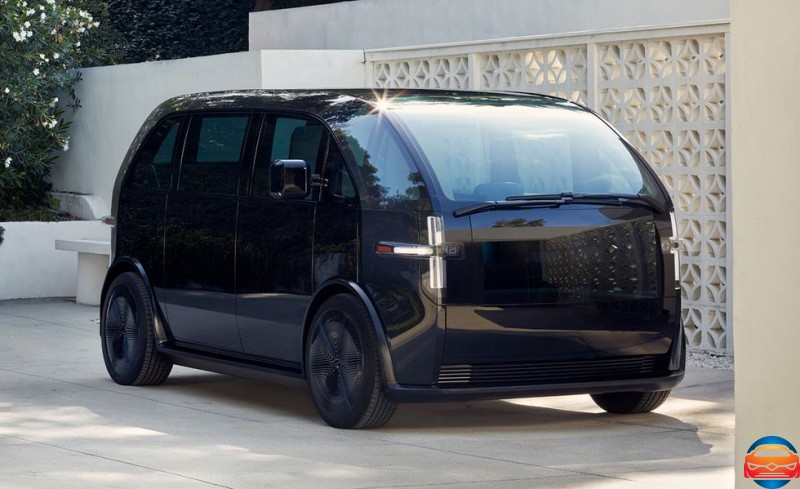Living in a small house offers a unique lifestyle that appeals to many individuals for various reasons. Here are three reasons why someone might choose to live in a tiny house:
Sustainability and Environmental Impact:
Tiny houses typically have a smaller ecological footprint compared to traditional homes. They require fewer resources to build and maintain, consume less energy for heating and cooling, and often incorporate eco-friendly materials and systems.
Living in a tiny house encourages a minimalist lifestyle, which can lead to reduced consumption and waste generation. This focus on sustainability aligns with the growing global movement towards environmental conservation and living more harmoniously with nature.
Financial Freedom and Affordability:
Tiny houses are significantly more affordable than conventional homes, both in terms of upfront costs and ongoing expenses. With lower mortgage payments (or no mortgage at all), reduced utility bills, and minimal maintenance costs, tiny house dwellers can achieve financial freedom and greater flexibility in their lifestyles.
Living in a tiny house allows individuals to prioritize experiences and relationships over material possessions, leading to a simpler, more fulfilling life. This financial freedom can enable people to pursue their passions, travel more frequently, or work less, enhancing overall well-being and quality of life.
Flexibility and Mobility:
Tiny houses are often designed to be mobile or easily relocatable, offering residents the freedom to change locations more readily. This flexibility can be particularly appealing for individuals who value adventure, exploration, or seasonal living arrangements.
Tiny house living encourages a more minimalist and clutter-free lifestyle, as residents must prioritize essential items and optimize space usage. This emphasis on simplicity and efficiency can lead to greater organization, reduced stress, and a sense of liberation from material possessions.
In summary, living in a tiny house can offer sustainability, financial freedom, and flexibility, providing a unique and rewarding lifestyle for those who value simplicity, environmental stewardship, and freedom of choice.
https://www.facebook.com/share/p/14t5kMhbWR/
Sustainability and Environmental Impact:
Tiny houses typically have a smaller ecological footprint compared to traditional homes. They require fewer resources to build and maintain, consume less energy for heating and cooling, and often incorporate eco-friendly materials and systems.
Living in a tiny house encourages a minimalist lifestyle, which can lead to reduced consumption and waste generation. This focus on sustainability aligns with the growing global movement towards environmental conservation and living more harmoniously with nature.
Financial Freedom and Affordability:
Tiny houses are significantly more affordable than conventional homes, both in terms of upfront costs and ongoing expenses. With lower mortgage payments (or no mortgage at all), reduced utility bills, and minimal maintenance costs, tiny house dwellers can achieve financial freedom and greater flexibility in their lifestyles.
Living in a tiny house allows individuals to prioritize experiences and relationships over material possessions, leading to a simpler, more fulfilling life. This financial freedom can enable people to pursue their passions, travel more frequently, or work less, enhancing overall well-being and quality of life.
Flexibility and Mobility:
Tiny houses are often designed to be mobile or easily relocatable, offering residents the freedom to change locations more readily. This flexibility can be particularly appealing for individuals who value adventure, exploration, or seasonal living arrangements.
Tiny house living encourages a more minimalist and clutter-free lifestyle, as residents must prioritize essential items and optimize space usage. This emphasis on simplicity and efficiency can lead to greater organization, reduced stress, and a sense of liberation from material possessions.
In summary, living in a tiny house can offer sustainability, financial freedom, and flexibility, providing a unique and rewarding lifestyle for those who value simplicity, environmental stewardship, and freedom of choice.
https://www.facebook.com/share/p/14t5kMhbWR/
Living in a small house offers a unique lifestyle that appeals to many individuals for various reasons. Here are three reasons why someone might choose to live in a tiny house:
Sustainability and Environmental Impact:
Tiny houses typically have a smaller ecological footprint compared to traditional homes. They require fewer resources to build and maintain, consume less energy for heating and cooling, and often incorporate eco-friendly materials and systems.
Living in a tiny house encourages a minimalist lifestyle, which can lead to reduced consumption and waste generation. This focus on sustainability aligns with the growing global movement towards environmental conservation and living more harmoniously with nature.
Financial Freedom and Affordability:
Tiny houses are significantly more affordable than conventional homes, both in terms of upfront costs and ongoing expenses. With lower mortgage payments (or no mortgage at all), reduced utility bills, and minimal maintenance costs, tiny house dwellers can achieve financial freedom and greater flexibility in their lifestyles.
Living in a tiny house allows individuals to prioritize experiences and relationships over material possessions, leading to a simpler, more fulfilling life. This financial freedom can enable people to pursue their passions, travel more frequently, or work less, enhancing overall well-being and quality of life.
Flexibility and Mobility:
Tiny houses are often designed to be mobile or easily relocatable, offering residents the freedom to change locations more readily. This flexibility can be particularly appealing for individuals who value adventure, exploration, or seasonal living arrangements.
Tiny house living encourages a more minimalist and clutter-free lifestyle, as residents must prioritize essential items and optimize space usage. This emphasis on simplicity and efficiency can lead to greater organization, reduced stress, and a sense of liberation from material possessions.
In summary, living in a tiny house can offer sustainability, financial freedom, and flexibility, providing a unique and rewarding lifestyle for those who value simplicity, environmental stewardship, and freedom of choice.
https://www.facebook.com/share/p/14t5kMhbWR/
0 Commenti
0 condivisioni
718 Views
0 Anteprima










